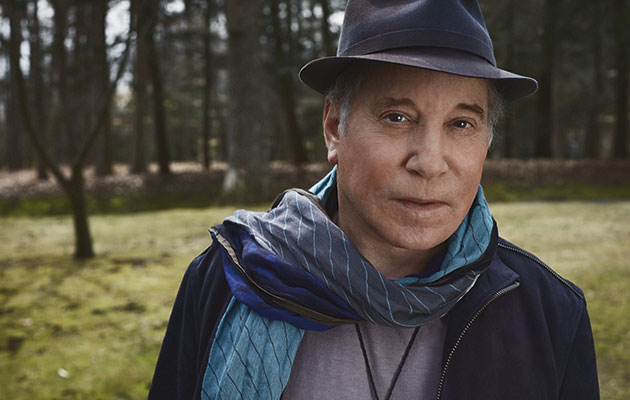Following the recent news that Paul Simon is to give a "farewell performance" in Hyde Park later this summer, it seemed an appropriate moment to post my interview with Simon from the July 2016 issue of Uncut. Incidentally, you can find more about Simon's Hyde Park concert by clicking here. Follow m...
When you say you were competitive, was it convenient then that Art wasn’t the songwriter?
I didn’t think of it that way. I was best friends with Artie. He wasn’t competitive with me. We were signed together. I really thought of us as a duo, and as a group, and that was fine. The Beatles were a group. But I do remember thinking, when Sgt Pepper came out, ‘I can’t believe that somebody is so much better than I am, that they are so far ahead.’ But anyway, whatever. Artie and I were fine until “Bridge Over Troubled Water” and the movies. We were fine. The movies broke up Simon & Garfunkel, really. But we would have broken up anyway because Artie thrives on big ballads and I like to write rhythm and Artie doesn’t like to sing rhythm. The thought of having to write a “Bridge Over Troubled Water” every album is too daunting, given what happened with “Bridge Over Troubled Water”. Anyway, I wanted to go to Jamaica and record ska, all kinds of stuff that I wanted to do that he didn’t have any interest in doing. So he went his way and sang the songs that he wanted to sing and I began doing what I like to do. It would have happened anyway because that’s who we were musically. Then a couple of times when we came back together, some of it was lousy and some of it was nice.
Which were the nice ones?
When the Everly Brothers were there, we had a great time. I think it was 2003. We did another, after that. But that wasn’t fun. Anyway. As it turns out, I had a lot on my mind, musically. As it turns out. I didn’t set out saying, “I have a lot that I want to accomplish.” It just grew as I went from stage to stage. Albums would take leaps. Like “Still Crazy After All These Years” was a leap. It was harmonically way better than what I had written before. It was a really good ballad with a really good title. I loved recording with the gospel quartets. I like going to Jamaica. I like travelling around and meeting other musicians. So the idea of recording in South Africa for Graceland didn’t seem intimidating. It felt like, “Well, I did it in Jamaica. I don’t know what it’ll be like, but it’ll be something akin to Jamaica.” Which it wasn’t.
Talking of Graceland, how do you view the controversy surrounding the album now? You were accused of breaking a cultural boycott.
I don’t regret it. I didn’t start it. Look, first of all, that existed in Britain to a far greater degree than it existed elsewhere in the world, with the exception of South Africa. But in South Africa, the musicians answer was, “Hey, I don’t want to hear your criticism. I’m out there in the world, you know, playing our music and doing well. So who are you?” Finally the argument came down to, “We, the African National Congress, didn’t approve of you going to South Africa.” It wasn’t about a cultural boycott. There was no boycott that applied to recording with South African musicians. It applied to performing in front of segregated audiences or sporting events or political events. But it didn’t apply to recording. Probably because it never occurred to them that anybody was going to do it, although the year before Malcolm McLaren had recorded Duck Rock in South Africa. The musicians voted whether they wanted me to come and they wanted to know how much I was going to play them, because Malcolm McLaren didn’t pay them anything and he took credit. I paid them double New York scale, which was something like $600 a session, and they were making $10 a session. So they were happy to come in and play. So the whole experience of making that record was very exciting and very pleasurable for everybody. Nothing bad happened until it was a hit.
So what changed?
The political issue and implications came up. I was friends with Hugh Masakela and Miriam Makeba who stood by my side and said, “Who do you people think you are, attacking this? What did you ever do for South Africa?” So what it turned out to be really was an argument that said the politicians should be able to dictate to the artists what they can and what they can’t do and the artists spoke back and said, “Why? How come you get to tell us that we can’t do this? Based on what? How did you decide that we’re doing damage to your cause when in fact we’re actually doing good and you guys are upset because we’re not listening to you? Is that the kind of government that you’re going to bring when you come in?” So it became a real artist versus politics argument and I’m quite proud that we won.
You mentioned accomplishment a moment ago. Is there anything left for you to accomplish, do you think?
I don’t think accomplish is the right word. Is there anything left to learn? It’s infinity. There’s so much to learn that you’re never going to get there. Which is part of the great pleasure of it.



